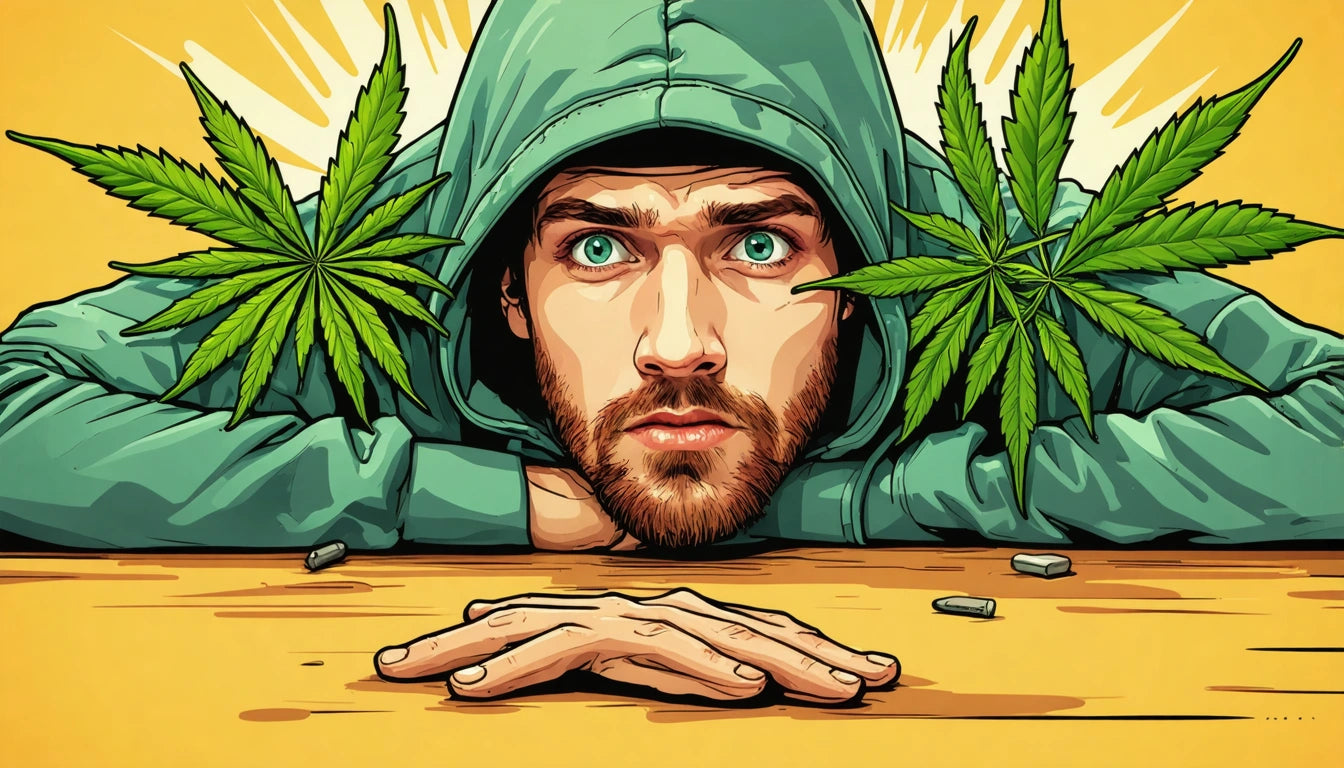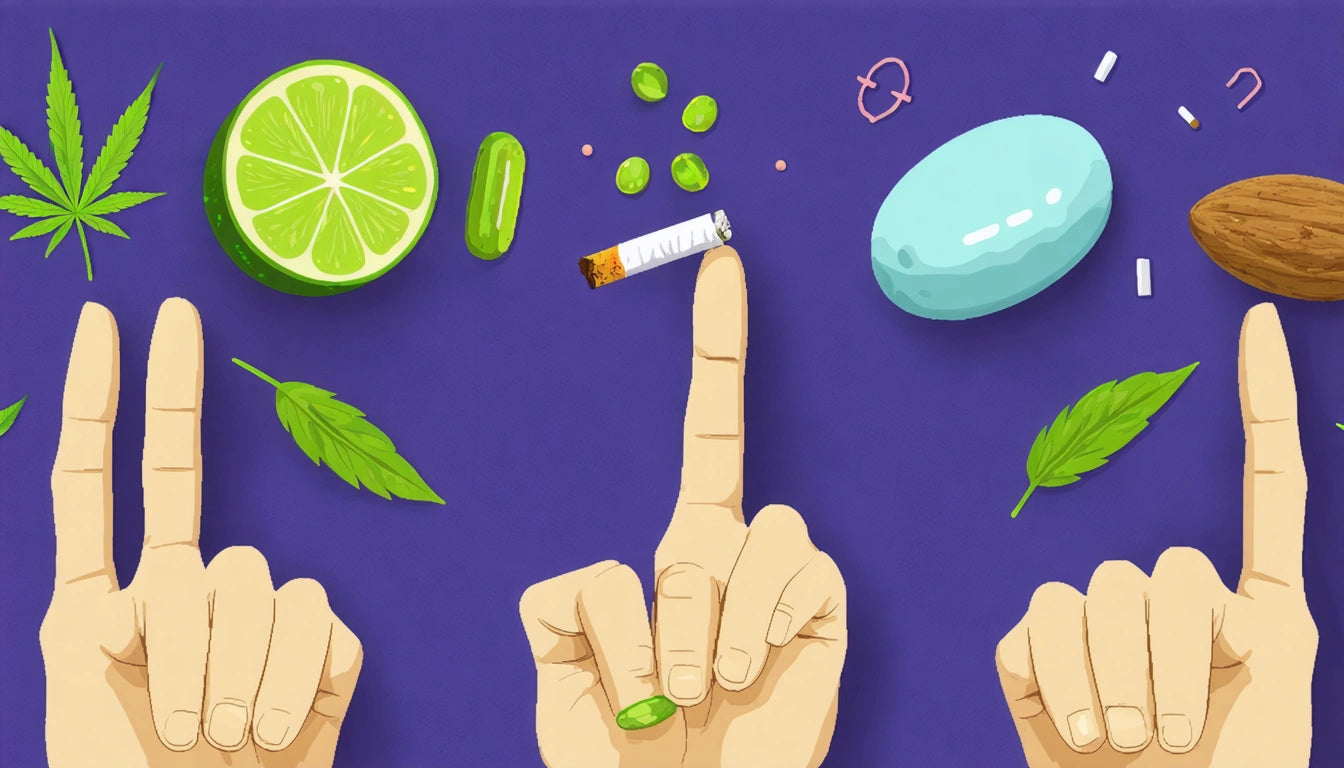Table of Contents
Can Weed Cause You to Pass Out or Black Out?
Cannabis consumption affects individuals differently, with reactions ranging from mild relaxation to more concerning symptoms like dizziness or feeling faint. While many users report positive experiences, questions about whether weed can make you pass out or black out are common among both new and experienced consumers. Understanding these potential effects is crucial for safe consumption.
Understanding Fainting and Blackouts: Definitions and Differences
Before examining cannabis's specific effects, it's important to distinguish between fainting and blacking out:
- Fainting (syncope): A temporary loss of consciousness caused by insufficient blood flow to the brain, typically resulting in collapse.
- Blacking out: Usually refers to memory loss or amnesia, often associated with alcohol consumption where someone remains conscious but later cannot recall events.
These terms are sometimes used interchangeably in casual conversation, but they represent different physiological processes. When discussing if can weed cause you to pass out, we're primarily examining syncope or fainting episodes.
Can Cannabis Cause Fainting? Examining the Evidence
Yes, cannabis can potentially cause fainting in some individuals, particularly those who are inexperienced, consuming high-potency products, or have certain risk factors. This phenomenon is sometimes called "greening out" in cannabis culture.
According to research on marijuana's effects on the body and mind, THC can cause temporary drops in blood pressure, which may lead to dizziness and, in some cases, fainting. However, complete loss of consciousness from cannabis alone is relatively uncommon compared to other substances.
Physiological Mechanisms Behind Cannabis-Induced Fainting
Several physiological responses to cannabis can contribute to fainting episodes:
- Orthostatic hypotension: Cannabis can cause a sudden drop in blood pressure when changing positions (like standing up quickly).
- Vasodilation: THC can dilate blood vessels, potentially reducing blood pressure and cerebral blood flow.
- Heart rate changes: Cannabis typically increases heart rate, which can sometimes lead to irregular patterns that affect blood flow.
- Dehydration: Cannabis can cause dry mouth and dehydration, which increases fainting risk.
These effects are typically dose-dependent, with higher doses and more potent products carrying greater risk. Using accurate digital scales for proper dosing can help consumers avoid consuming more than intended, particularly when dealing with concentrates or edibles.
Risk Factors That Increase Chances of Passing Out
Certain factors can increase the likelihood of fainting after cannabis use:
- First-time or infrequent users
- Consuming high-THC products with little CBD
- Pre-existing cardiovascular conditions
- Combining cannabis with alcohol or other substances
- Dehydration or low blood sugar
- Standing for long periods or hot environments
- Anxiety or panic reactions to the high
As noted in this exploration of cannabis effects and myths, individual tolerance and sensitivity to THC vary significantly between users.
Blackouts vs. "Greening Out": What's the Difference?
Unlike alcohol, which can cause true blackouts where memories aren't formed, cannabis rarely causes amnesia in the traditional sense. When people ask "can you black out on weed," they're often referring to one of these experiences:
- Greening out: An overwhelming cannabis experience characterized by nausea, anxiety, dizziness, and sometimes fainting.
- Temporary confusion: High doses of THC can cause disorientation and difficulty forming coherent memories.
- Falling asleep: Cannabis, particularly indica strains, can cause such deep relaxation that users fall asleep suddenly.
As explained in this article on varying cannabis effects, while some users may experience intense reactions, others may feel minimal effects from the same dose.
Prevention and Safety: Avoiding Adverse Reactions
To reduce the risk of passing out or experiencing other adverse effects:
- Start low, go slow: Begin with low doses and gradually increase as tolerance builds.
- Choose balanced products: Products with both THC and CBD may reduce adverse effects.
- Stay hydrated: Drink plenty of water before, during, and after cannabis use.
- Consume in safe settings: Use cannabis while seated or in environments where falling wouldn't cause injury.
- Be aware of product potency: Modern cannabis products can be extremely potent compared to historical varieties.
- Avoid mixing substances: Combining cannabis with alcohol or other drugs increases risks significantly.
Understanding how cannabis affects your system, even through secondary exposure, can help users make informed decisions.
Medical Considerations and When to Seek Help
While passing out from cannabis is typically not life-threatening, it can indicate underlying issues or lead to injuries from falling. Seek medical attention if:
- Fainting episodes are recurrent
- Loss of consciousness lasts more than a few minutes
- You experience chest pain, irregular heartbeat, or severe headache
- You have a known heart condition
- You've sustained an injury while falling
For those concerned about potential interactions with medications or pre-existing conditions, consulting a healthcare provider before using cannabis is recommended. As this article on cannabis safety explains, while fatal overdoses are virtually unknown, other health complications can occur.
Understanding how cannabis affects your individual physiology is key to safe consumption. By recognizing risk factors, starting with appropriate doses, and creating safe consumption environments, most users can enjoy cannabis without experiencing fainting or severe adverse reactions.











Leave a comment
All comments are moderated before being published.
This site is protected by hCaptcha and the hCaptcha Privacy Policy and Terms of Service apply.